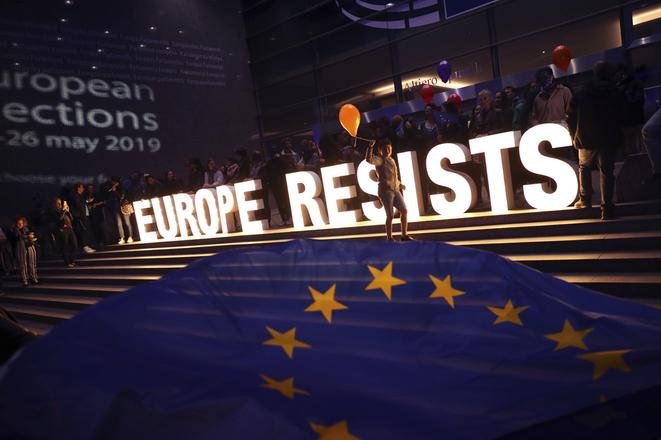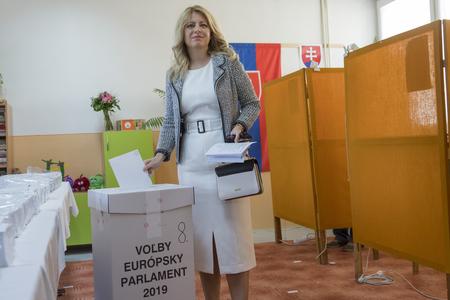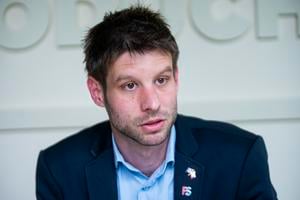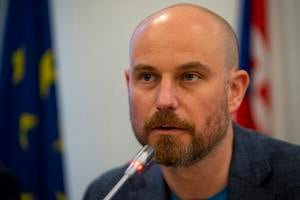Slovaks have chosen mostly pro-European politicians to represent them in the European Parliament in the next five years. In the EU election, voters have turned away from parties of the ruling coalition.
Out of the 14 mandates that Slovakia gets in the EP (13 + 1 after Brexit), only three will be taken by candidates of a coalition party (Smer), while six go to non-parliamentary opposition, two to far-right extremists, and three to parliamentary opposition parties.
A coalition of two new parties, Progressive Slovakia and Spolu, confirmed their victory wave during the elections to European Parliament. After electing Matúš Vallo as Bratislava mayor and Zuzana Čaputová as the president of Slovakia, they won the EP elections with 20.11 percent of votes, which will translate into four mandates.
The far-right People’s Party-Our Slovakia (ĽSNS), however, also had a strong result. With the support of 12 percent of votes, it obtained two seats in the EP.
As many expected prior to the elections, those two forces, strongly pro-EU (PS and Spolu) and strongly anti-EU (ĽSNS), were most successful in mobilising their electorates. The mobilisation also increased the turnout to 22 percent, compared to only 13 percent in 2014.
“Higher turnout can surely be ascribed to those two parties on the opposite sides of the spectrum,” Zuzana Gabrižová, analyst of Euractiv website, told The Slovak Spectator.
The election in Slovakia, however, also highlighted other parties. The Christian Democratic Movement (KDH) and Freedom and Solidarity (SaS) also managed to mobilise their voters, both gaining two seats in the European Parliament.
Turnout still an EU low
Who are the new Slovak MEPs?
Progressive Slovakia/Spolu
Michal Šimečka
Martin Hojsík
Vladimír Bilčík
Michal Wiezik
Smer
Monika Beňová
Miroslav Číž
Róbert Hajšel
ĽSNS
Milan Uhrík
Miroslav Radačovský
KDH
Ivan Štefanec
Miriam Lexmann (she will enter the EP after the UK leaves the EU)
SaS
Lucia Ďuriš Nicholsonová
Eugen Jurzyca
OĽaNO
Peter Pollák
Despite the fact that the turnout in Slovakia has almost doubled since 2014, it was still the lowest within the EU, with the European average at almost 51 percent. Gabrižová says it is hardly a reason to celebrate, but it does show a positive trend: Slovakia has reversed the decreasing turnout that had been dropping in the last three European elections.
Martin Slosiarik, director of Focus polling agency, sees it as a big positive.
“Hopefully, it partly means that we are interested in issues that concern the international community and we are not focused only on ourselves,” Slosiarik said, as quoted by the SITA newswire. He also ascribes the higher turnout to the get-out-the-vote campaign by the European Parliament and European Commission.
Extremists are in
For the first time in the history of its EU membership, Slovakia will have far-right extremists in the European Parliament.
“Until now, Slovakia did not have such representatives, which was a little anomaly,” Gabrižová noted. She does not expect the two ĽSNS MEPs to enter any of the parliament's political families, because Kotleba's party is unacceptable even for those that are viewed as radical.
Political analyst Grigorij Mesežnikov shares her opinion.
"They will not be part of any European families. It's hard to imagine anyone would take them in," Mesežnikov told the TASR newswire.
Slovakia will thus likely not have a representative among the hard-line eurosceptics, such as the Europe of Nations of Freedom. Sme Rodina of Boris Kollár, who teamed up with Matteo Salvini and Marine Le Pen in their group, did not make it to the EP.
In fact, compared to the rest of the Visegrad Group region, the strongest pro-European voice is coming from Slovakia after this election, Gabrižová said.






